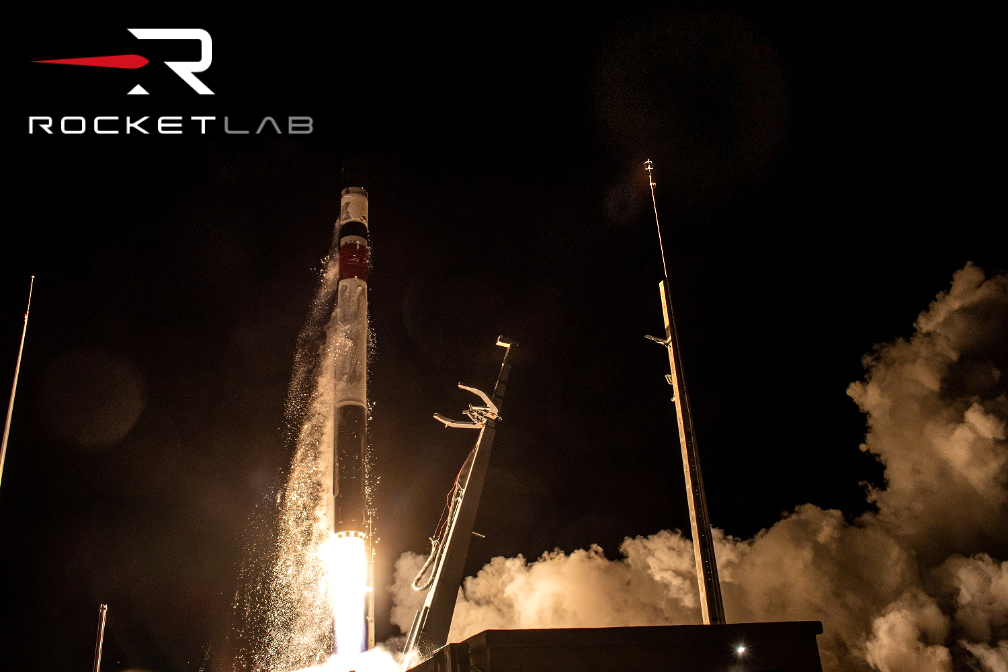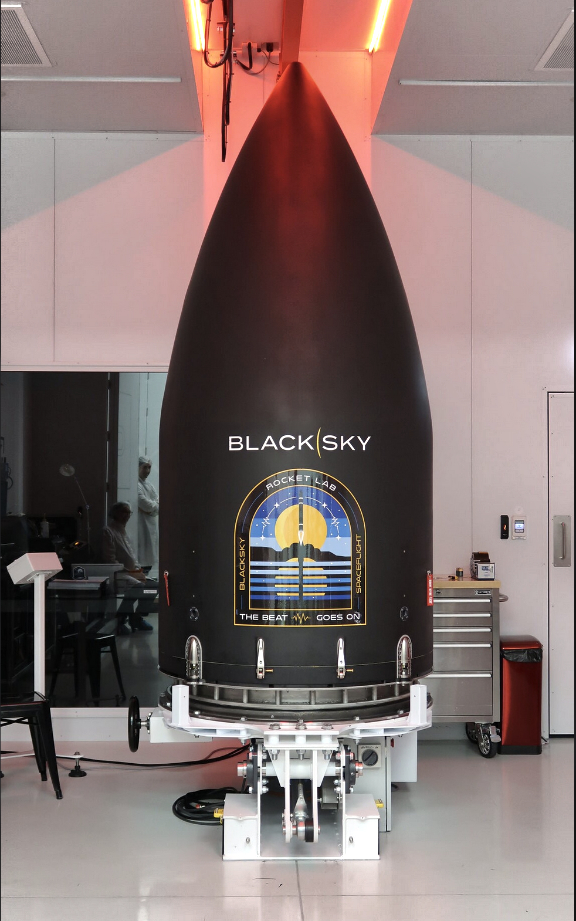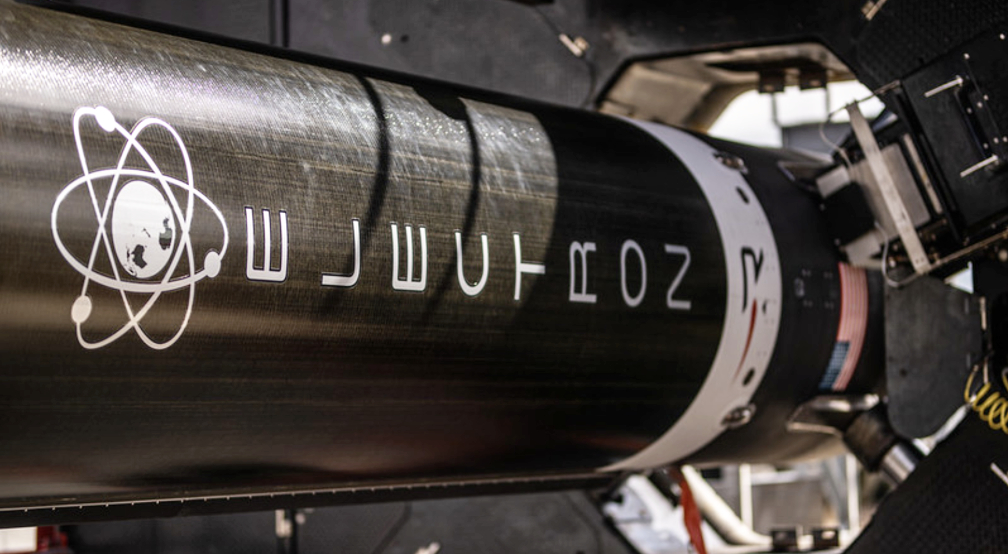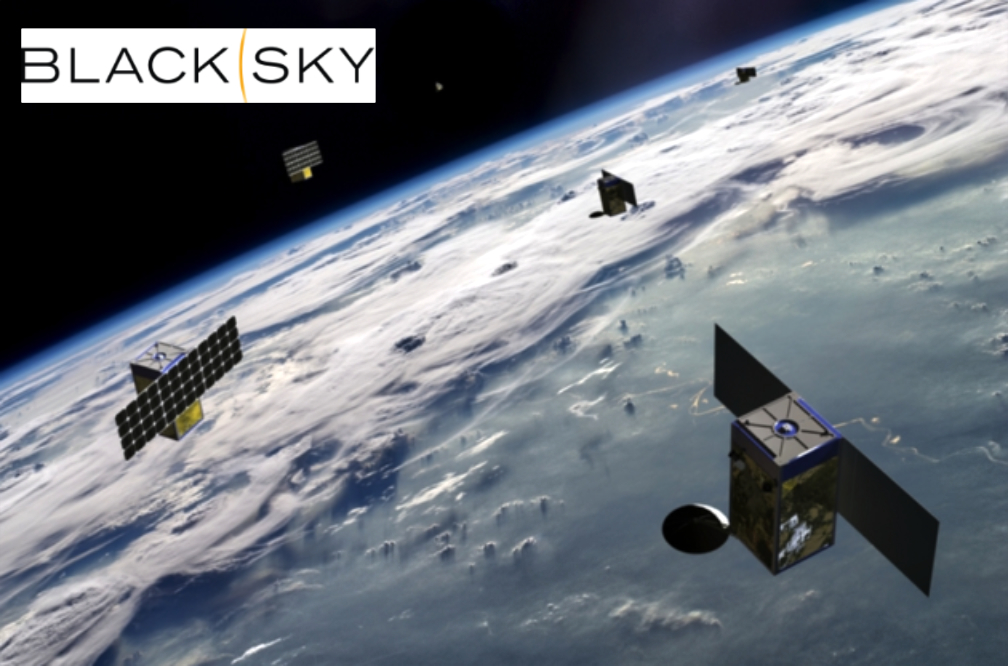
Rocket Lab USA, Inc. (Nasdaq: RKLB) successfully launched their 35th Electron rocket from Mahia, New Zealand, deploying two, multi-spectral, Gen-2 satellites to LEO for BlackSky (NYSE: BKSY) through launch services provider Spaceflight, Inc.
The mission occurred only seven days following the Company’s previous Electron mission from Launch Complex 2 in Virginia, setting a new company record for fastest turnaround between Electron missions.

The mission, named “The Beat Goes On,” lifted off at 09:14 UTC, March 24th., 2023, from Pad B at Launch Complex 1, Rocket Lab’s private launch site on New Zealand’s Mahia Peninsula and was Rocket Lab’s seventh launch for BlackSky since 2019, helping to build out BlackSky’s growing, real-time, geospatial intelligence constellation.
Additionally, Rocket Lab accomplished a successful ocean splashdown of Electron’s first stage in an effort to make Electron the world’s first, reusable, orbital, small launch vehicle. The first stage will now be transported back to Rocket Lab’s production complex for assessment, testing and re-qualification to inform future recovery missions. Pending the outcome of these assessments Rocket Lab may choose to proceed with marine operations as the primary recovery method, opting to transition away from helicopter use.
Rocket Lab is on track this year to surpass its launch record of nine launches set in 2022 with 15 planned launches. Upcoming disclosed Electron missions in 2023 include two launches for the NASA TROPICS constellation, the first of five dedicated missions for Internet-of-Things (IoT) connectivity provider Kinéis; several launches for Capella Space, and the launch of a mission to demonstrate space debris removal technology by Astroscale Japan.
“Electron has repeatedly proven itself as a reliable constellation builder and today we’re proud to deliver mission success once again for BlackSky and Spaceflight after many previous missions together. Launching two successful missions just seven days apart from two different hemispheres is a real demonstration of responsive space in action, and successfully splashing down Electron’s first stage as part of our reusability program is the icing on the cake.”
Rocket Lab founder and CEO Peter Beck
Previous information posting…
UPDATE: Rocket Lab has delayed the launch to low Earth orbit of a two-stage Electron rocket due to bad weather. The launch will take place from the New Zealand site on Friday at 3:45 a.m. EDT (0745 GMT; 8:45 p.m. local New Zealand time). The mission had been targeted for Wednesday (March 22), but Rocket Lab pushed it back because of bad weather. The mission, named “The Beat Goes On,”will launch a pair of satellites on a dedicated Electron mission for BlackSky (NYSE: BKSY) through global launch services provider Spaceflight, Inc.


Rocket Lab USA, Inc. (Nasdaq: RKLB) will launch a pair of satellites on a dedicated Electron mission for BlackSky (NYSE: BKSY) through global launch services provider Spaceflight, Inc., during a launch window that opens on March 22nd., 2023 UTC.
The mission, named “The Beat Goes On,” will launch two of BlackSky’s Gen-2, Earth-imaging satellites from Pad B at Rocket Lab Launch Complex 1 in Mahia, New Zealand, and will bring the total number of satellites delivered by Electron to orbit to 159 — Electron will deliver the satellites to a circular 450 km orbit, that will bring the total number of satellites in BlackSky’s constellation to 16.
As a secondary mission, Rocket Lab plans to recover Electron’s first stage after it parachutes back to Earth and splashes down in the ocean. Rocket Lab’s recovery team will retrieve Electron using a customized vessel and transport the stage back to Rocket Lab’s production complex for analysis. Data from this recovered stage will inform Rocket Lab’s ongoing recovery and reuse program.
The pair of high-resolution, multi-spectral, Gen-2 satellites to be launched on Electron will expand BlackSky’s network in space and its offering of real-time geospatial intelligence and monitoring services. BlackSky combines high-resolution images captured by its constellation of microsatellites with its proprietary artificial intelligence software to deliver analytics and insights to industries including transportation, infrastructure, land use, defense, supply chain management, and humanitarian aid.

Rocket Lab founder and Chief Executive, Peter Beck, said, “We’re proud to continue playing a key role in building out BlackSky’s growing constellation. We’ve now delivered 9 satellites to orbit for BlackSky since our first launch for them in 2019 and we’re grateful to have been entrusted with their mission once again. Counting down to another mission just six days after a successful launch from LC-2 in Virginia is no mean feat and testament to our team’s experience and dedication to delivering response launch.”
